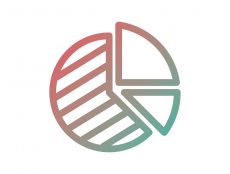
Higher Education
Graduate Testing and GRE: What Can Students Expect?
By eLearning Inside
November 22, 2022
The Graduate Record Examinations, or GRE, is a standardized test and a common admissions requirement for US and Canadian graduate schools. It tests your basic arithmetic, data analysis, algebra, geometry, and vocabulary. Most importantly, it measures your critical thinking skills.
A good GRE score is 155 or above, and that’s nearly impossible to get without studying. If you want to ace your graduate exam on the first try, you’ll need to be adequately prepared.
How to Pass Your GRE and Other Graduate Examines
A high score on the GRE (or a graduate exam equivalent) will have a direct, positive impact on your graduate school application. Be sure to study hard using the following essential tips.
1. Find a Great Preparation Course that Suits Your Learning Style
For most students, a prep course is required to get an incredible score on the GRE. In fact, students score higher on the GRE when they use a great preparation course. That’s because they supply you with study material and other relevant content you’ll need to stay on track.
Students should purchase a course at least 3 months before their exam but should research available prep courses a month before that. The best prep course in the world won’t help you if it isn’t catered to your learning style, so take the time to look for one that meets your needs.
2. Use Education Technology (EdTech) Study Resources
Education technology is completely transforming how we learn. EdTech tools such as virtual reality lessons and teacher-controlled class robots help students stay engaged. Plus, students benefit from increased collaboration, 24/7 access to learning, and personalized experiences.
If you’re already taking a self-directed or scheduled prep course, then you’re seeing EdTech in action. But why not take it further? Why not include gamification in your online classroom?
Gamification can turn any tedious task into something fun because it offers rewards every time you reach a milestone. Students can use gamification to stay on track, compare their scores, and gain back control. As another benefit, reward systems improve your mood and motivation.
3. Separate Your Study Materials into Select GRE Sections
The GRE is separated into three sections: the Analytical Writing Assessment section, the Verbal Reasoning section, and the Quantitative Reasoning section. If you have access to a pre-test, take one and look at your lowest score. Start studying the section you’re the least confident about.
4. Learn How to Write Persuasively for Your Writing Assessment
Both analytical writing assessments last 30 minutes, so you don’t have time to write creatively. Instructors are looking for a logical essay that gets to the point. We recommend starting with your thesis and writing about a topic you’re familiar with, so you can write as quickly as possible.
5. Learn to Tackle Multiple Blanks and Reading Comprehension
In the Verbal Reasoning section, you’ll need to answer text competition, sentence equivalence, and reading compression question types. Here’s a tip: a multiple bank text completion question provides more context clues than single bank questions, so read each sentence carefully.
When you get to the reading comprehension section, remember that the GRE is testing you on your ability to understand the passage. You should take notes or highlight passages that sound important. You only have one minute to answer each question, so be sure to stay attentive.
6. Ace Your Sentence Equivalence Section by Eliminating Answers
Sentence equivalence questions in the Verbal Reasoning section are easier to figure out if you eliminate answer choices. You’ll read answers that won’t fit, so cross them out and focus on the ones that do. Even if you’re left with 2 answers, you have a 50-50 shot at getting it right.
7. Most of the Quantitative Reasoning Section Tests Critical Thinking
In the Quantitative Reasoning section, you’ll come across quantitative comparison, problem-solving, and proportion questions. While math skills are important here, you won’t have to do a lot of actual math. Instead, use your math knowledge to come up with a probable answer.
For example, quantitative comparison questions will show you two quantities. You’re supposed to find out which one is bigger (or if they’re equal). The test won’t give you enough information to know for sure, so you’ll need to use your knowledge of number properties to find the answer.
8. Algebra and Geometry Questions Will Require Math Skills
The algebra and geometry questions on the GRE exam almost always require pen-to-paper math skills. The algebra section will ask you to isolate a variable, which could mean finding its value. Geometry questions ask you to solve one side of a shape, such as a square or a triangle.
It’s important to note that the GRE loves to ask questions about right-angle triangles. These are easy to solve if you’re familiar with the Pythagorean theorem (a2 + b2 = c2) and side and angle ratios. Memorize common side ratios like 3:4:5 and 5:12:13 to save you time on the exam.
Featured image: Inside Creative House, iStock.









A well written piece with insightful evidence provided
As a Business Education teacher that teaches the Microsoft Suite I have observed first hand students who enter Word, PowerPoint, Excel, or Access classes thinking this is second nature to them. After creating a table or query, inserting a chart, students soon understand it is not “second nature”.